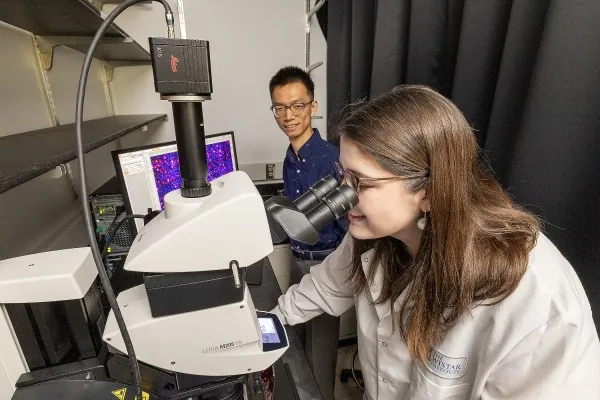
Groundbreaking Study at Wistar Institute Unveils New Combination Therapy for Metastatic Ovarian Cancer!
2024-11-21
Author: Sarah
PHILADELPHIA – November 21, 2024
In a significant breakthrough for cancer research, scientists at the Wistar Institute have developed a novel combination therapy that shows promise in treating metastatic ovarian cancer, a disease notorious for its high mortality rate and resistance to standard treatments. The study, led by Dr. Nan Zhang and his team from the Ellen and Ronald Caplan Cancer Center, revealed that this approach not only shrinks tumors but also boosts survival rates by making them more susceptible to chemotherapy.
Published in The Journal of Experimental Medicine, the research article titled, 'Myeloid activation clears ascites and reveals IL27-dependent regression of metastatic ovarian cancer,' highlights a novel method of indirectly targeting ovarian cancer cells in the peritoneal fluid, an important step in combating this aggressive disease. Dr. Zhang noted, 'This is the first time researchers have been able to indirectly target ovarian cancer cells in peritoneal fluid by inducing an immune reaction in preclinical models.'
Currently, the prognosis for patients diagnosed with metastatic ovarian cancer is grim, with only a 30% chance of surviving beyond five years. The challenges are particularly daunting because ovarian cancer typically resists chemotherapy and can spread rapidly through peritoneal fluid into the surrounding cavity, where it thrives in an immunosuppressive environment.
To confront these challenges, Dr. Zhang's team drew inspiration from historical methods used nearly a century ago, specifically the work of surgeon William B. Coley, who achieved success by injecting patients with inactivated pathogens to stimulate immune responses. This historical perspective laid the groundwork for their innovative therapy.
The researchers combined the pathogen-derived compound β-glucan, known for activating myeloid cells, with interferon-gamma (IFNγ), to specifically target and activate immune cells in the peritoneal cavity. The results were striking: significant reductions in tumor size were observed in lab models, including strains of ovarian cancer that were resistant to conventional chemotherapy.
'Our work has opened the door to a possible new method of treating a particularly aggressive cancer,' remarked Dr. Brennah Murphy, the lead author of the study. 'Ovarian cancer has a reputation for its treatment resistance, but we’ve demonstrated in preclinical trials that our combined treatment can overcome this obstacle.'
This groundbreaking research holds promise not only for ovarian cancer patients but also may pave the way for new treatments for other cancers that exhibit similar resistance to conventional therapies.
As the team prepares to advance these findings towards clinical trials, the hope is to translate this approach into viable treatment options for patients struggling against this formidable disease. The fight against ovarian cancer continues, and innovations like these shine a light on a path toward more effective therapies.
Stay tuned for more updates as this research progresses—could this be the breakthrough we’ve been waiting for?






 Brasil (PT)
Brasil (PT)
 Canada (EN)
Canada (EN)
 Chile (ES)
Chile (ES)
 España (ES)
España (ES)
 France (FR)
France (FR)
 Hong Kong (EN)
Hong Kong (EN)
 Italia (IT)
Italia (IT)
 日本 (JA)
日本 (JA)
 Magyarország (HU)
Magyarország (HU)
 Norge (NO)
Norge (NO)
 Polska (PL)
Polska (PL)
 Schweiz (DE)
Schweiz (DE)
 Singapore (EN)
Singapore (EN)
 Sverige (SV)
Sverige (SV)
 Suomi (FI)
Suomi (FI)
 Türkiye (TR)
Türkiye (TR)